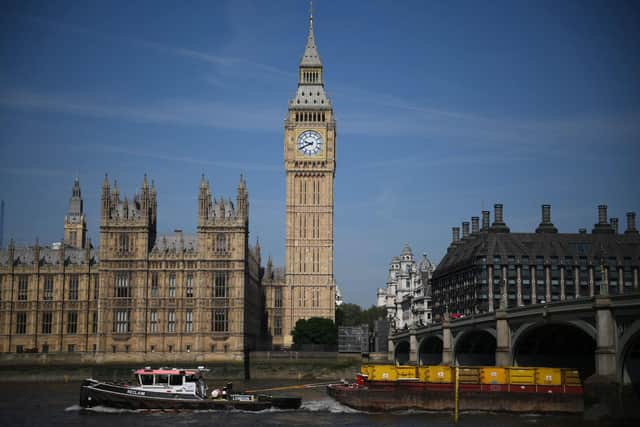Financial woes of councils could see the disconnect with the public widen - Andy Brown
In Birmingham they have gone over the edge and had to call in their equivalent of the receivers. In that city the people who were elected by the local community will no longer play any meaningful role in decisions about which essential services get cut.
It is tempting to put this down to inefficient decision making by councils run by one particular party. The facts don’t support that theory. On Derbyshire Council the Conservatives increased their majority in 2021. They have a £46.6m unexpected deficit in their finances but only £28m left in their reserves. Councils in Devon, Guildford, Hastings, Kent and Southampton are also on the brink of financial failure.
Advertisement
Hide AdAdvertisement
Hide AdThe cost of living crisis has been hard on individuals as people struggle to pay hefty fuel bills, high transport costs and soaring food prices. Local councils spend a lot of money on all those things. Bin lorries consume fuel. People in care homes eat. Leisure centres have to be heated. Whilst inflation has been putting up costs, income from central government has been subject to real term cuts for year after year. Councils have cut and cut again and can’t reasonably just pass on rising costs to residents who are struggling with every other bill rising.


There are, of course, almost no organisations that can’t be run more efficiently and where savings can’t be made but there comes a time when even the most prudent management finds itself so short of money that it has to stop doing things which are fundamental to its purpose. The things that these cash strapped councils are looking at cutting spending on include support for children with special needs and help for elderly people to stay in their own homes. Local sports facilities and swimming pools are being closed in the middle of an obesity crisis.
Even Councils that pride themselves on being responsible with their finances are struggling. The new giant North Yorkshire Council that I sit on was marketed to its residents as a means of saving money by removing the cost of having more local District Councils. It started life by budgeting to lose £15m in its first year of operation and even that worrying target is not proving easy to meet.
There was a time when local councils were powerful organisations which could make important decisions about how to promote the economic success of their communities. It is only necessary to glance at the impressive Council buildings put up by people with civic pride in places like Bradford to realise that they housed a powerful institution.
Advertisement
Hide AdAdvertisement
Hide AdThese days local councils are a shadow of their former selves. Their powers have been systematically stripped over decades as more and more decisions are made by Westminster instead of locally or have been outsourced to shadowy organisations.
Most people assume that their elected councillors have an influence over what happens in their local school. Over half of all schools are now run by academy trusts with such obscure governance arrangements that even experts struggle to understand how any member of the public can influence their decision making.
It used to be possible to look to the local council for help with finding housing. The vast bulk of council housing stocks have been sold off and the money frittered away instead of invested in building homes that are needed.
Instead of having significant sums of money to form well thought out plans to redevelop neglected areas or develop new business parks, councils have been reduced to bidding for scraps of funding which are handed down by central government. That wastes huge amounts of time and resources on failed bids, results in even those who win resources rushing through short term projects that cease when the temporary funding ends, and enables central government to channel money to those living in marginal constituencies instead of allocating it fairly.
Advertisement
Hide AdAdvertisement
Hide AdLocal councils have been left increasingly powerless to protect and promote the community that they care about whilst decision making is increasingly concentrated in Westminster.
That is one of the key causes of the gap that has emerged between ordinary people and their elected representatives. If most people know the name of their local councillor and that person can quickly sort out problems for them and make real improvements to local life it increases trust.
If their elected representative has very little real power, they sit on a council which is so desperately short of money that it can’t run services properly and all the key decisions are made in London it is easy for cynicism to take hold.
Andy Brown is the Green Party councillor for Aire Valley in North Yorkshire.